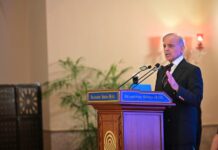Pakistan’s annual foreign exchange inflows from freelance services are rapidly increasing, with projections to reach $500 million in the current fiscal year (FY25), highlighting the growing importance of the digital workforce to the country’s economy.
As global work trends shift towards remote and digital platforms, Pakistan is emerging as a hub for freelance talent, supported by a youthful population with over 70% under the age of 30. This demographic advantage is fueling a surge in the freelancing sector.
According to the State Bank of Pakistan, freelance exports officially brought in over $400 million in FY24, with expectations to exceed $500 million this fiscal year as more young professionals join the global remote workforce. Amin noted that these earnings support thousands of households and enhance Pakistan’s reputation in IT, design, digital marketing, and content creation.
Despite this growth, challenges remain, including limited access to international payment gateways like PayPal, unclear taxation rules, and a lack of banking products tailored for freelancers. Addressing these issues will be crucial for sustaining and expanding the sector’s contribution to Pakistan’s economy.
The Pakistan Freelancers Association (PAFLA) stressed the vital role freelancers play in supporting Pakistan’s economic stability, especially amid ongoing trade deficits and currency fluctuations. PAFLA described the sector as a source of “sustainable, scalable foreign income” that contributes to the economy without the need for factories or traditional exports.
PAFLA is actively engaging with federal and provincial governments to develop supportive policies, including tax incentives, simplified account registration, reduced transaction fees on remittances, and legal protections for freelancers.
The rise in freelance exports is powered by the digital revolution, expanding internet access, and international platforms such as Upwork, Fiverr, and Freelancer.com. Pakistani freelancers now serve clients worldwide, including the US, UK, Middle East, and Europe.























